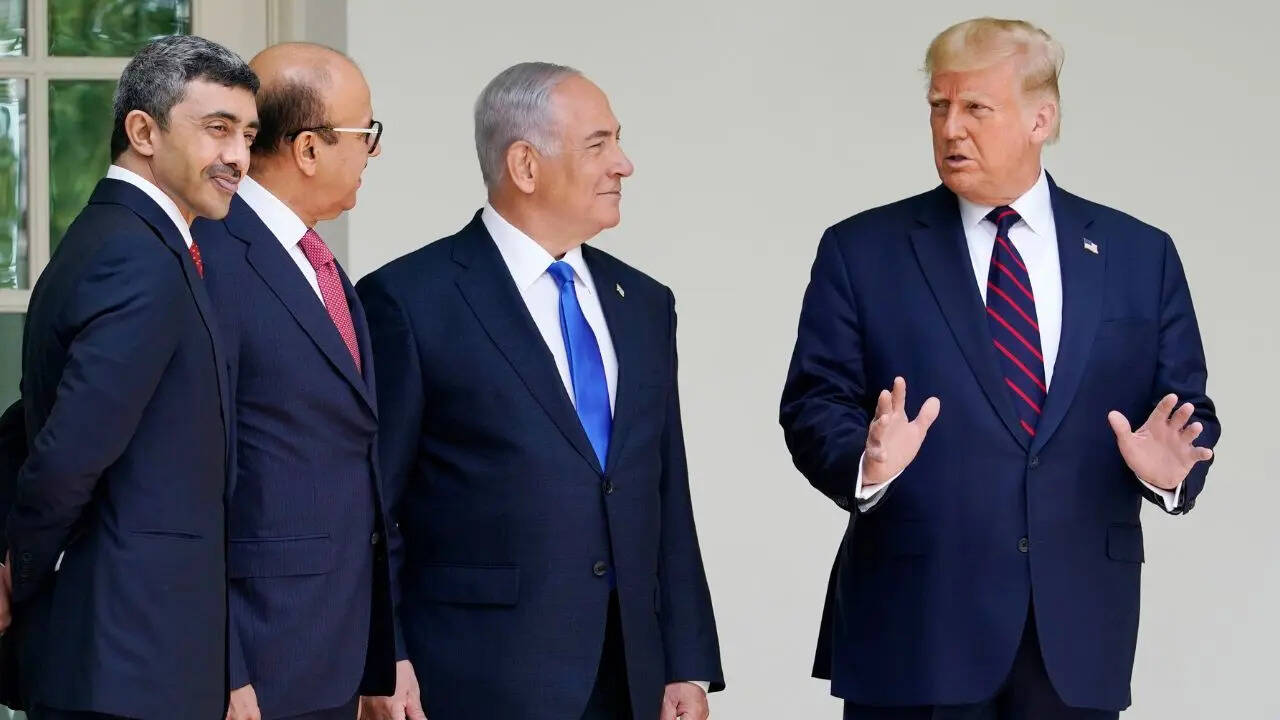
President Donald Trump and Israeli Prime Minister Benjamin Netanyahu at the White House in 2020. (Source: AP)
Photo : AP
US President Donald Trump has grown increasingly frustrated with Israeli Prime Minister Benjamin Netanyahu of Israel, telling aides that the leader has repeatedly defied his wishes by pursuing military operations over negotiations, according to an exclusive report by The Wall Street Journal.
Trump told his aides that Netanyahu preferred using force to compel Hamas’s surrender instead of accepting the President’s vision of a ceasefire deal. His irritation spiked last week, after Israel carried out a strike on Hamas negotiators in Qatar.
“He’s f—ing me,” Trump said, according to officials briefed on a conversation with senior aides, including Secretary of State Marco Rubio. The comment reflected the depth of the president’s exasperation but not, at least so far, any willingness to recalibrate US policy.
Despite the private anger, Trump has not applied public pressure or conditioned the vast American military and diplomatic support for Israel. Instead, he has stood by as Israeli forces pressed deeper into Gaza City, even as prospects for the negotiated settlement he envisions have receded.
Trump has used harsh words for Netanyahu before. After the Prime Minister congratulated Joe Biden on his 2020 election victory, Trump called him disloyal in an interview: “F—him.”
“I’m mystified and so are many other Israelis,” Itamar Rabinovich, a former Israeli ambassador to the United States, told WSJ. “The only thing that’s really working for him is Trump’s support.”
Shalom Lipner, a former adviser to multiple Israeli prime ministers, said Netanyahu’s defiance has prolonged the Gaza war and complicated Washington’s regional diplomacy. “Netanyahu’s moves have created trouble for Trump with other U.S. allies in the region and made the expansion of the Abraham Accords excruciatingly difficult,” Lipner said.
Still, Trump’s personal rapport with the Israeli leader remains strong. Omer Dostri, a former Netanyahu spokesman, described ties between the two as “very, very tight.”
Pressure on Hamas, Not Israel
Trump has concentrated his public criticism on Hamas, issuing repeated warnings that the group will face more violence if it resists Israel’s demands. Netanyahu has insisted that the war can end only when Hamas disarms, releases hostages and its leaders leave Gaza — conditions far removed from Trump’s preferred negotiated ceasefire.
After the Qatar strike, Trump placed two phone calls to Netanyahu: one to voice displeasure, and another, more cordial, to ask about the operation’s results. The president later praised Qatar as a “staunch ally” for hosting American troops and mediating the conflict.
But the Israeli strike killed six lower-level Hamas negotiators rather than senior figures, according to the group. “The chances are, if our operation in Doha succeeded, Trump wouldn’t have condemned it, he would have taken credit for it,” Michael Oren, a former Israeli ambassador to Washington, told WSJ. “He likes winners.”
For now, Netanyahu appears to believe he can withstand Trump’s occasional bursts of anger. Damian Murphy, a former Democratic staff director on the Senate Foreign Relations Committee, said the Israeli leader has little incentive to change course.
“Netanyahu knows that while the White House may grumble a bit, there really is no downside to an ‘ask forgiveness, not permission’ approach,” he said.
Trump, who is set to address the United Nations General Assembly next week, has repeatedly cited his role in brokering the Abraham Accords and openly seeks a normalisation deal between Israel and Saudi Arabia. Israeli officials, for their part, insist relations with Washington remain excellent and dismiss reports of discord as “fake news.”
